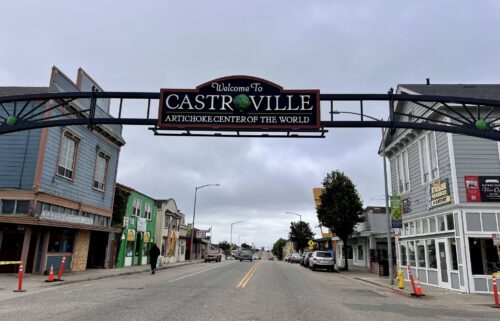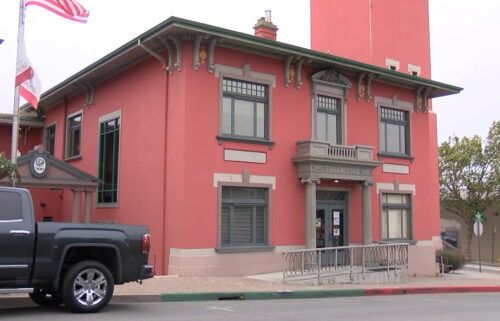Some school librarians fed up with book bans are organizing and fighting back
By Nicole Chavez, Evan McMorris-Santoro and Laura Dolan, CNN
Carolyn Foote was shocked and angry when hundreds of books about race, equality or sexuality in Texas school libraries were targeted by Republican lawmakers. She and other librarians focused on making their collections more reflective of the increasingly diverse community and their work was now under threat.
Over the past several weeks, the retired school librarian in Austin, Texas — along with three other library professionals — has been spearheading a grassroots effort known as #FReadom. Their goal is to fight back against the wave of book challenges in the state and create a space for school librarians to help each other.
“We wanted to make a statement that we are out here and that we are willing to speak up for our students, for authors and for the books that our students deserve to have access to,” Foote told CNN.
This year, parents and community members across Texas and even some state lawmakers have accused educators of exposing children to books that contain pornography or other obscene content. A number of school officials launched in-depth reviews of their book collections and some have said the process “to make library selections has failed.” School librarians are at the center of this debate and many are worried they might lose their jobs or even face criminal charges.
“Some of the books that people are concerned about have to do with sexuality. We have (state) laws against providing pornography to minors (and) although it’s not happening, librarians are concerned that they will be accused of this,” said Mary Woodard, president-elect of the Texas Library Association.
Books written for children and young adults are facing opposition across the country. In Pennsylvania, a school district banned anti-racism books and later decided to reverse its decision after student protests. Last month, a school board member in Florida filed a criminal complaint over a Black queer memoir.
Deborah Caldwell-Stone, director of the American Library Association’s Office for Intellectual Freedom, said there has been an “unprecedented” number of book challenges reported to her office this year.
Since June 1, the ALA’s Office for Intellectual Freedom has tracked at least 155 incidents across the US and has helped librarians navigate the reconsideration process or provided resources to 120 of those cases, according to the latest figures released by the group last month. When asked for an updated number of book challenges reported to the ALA, Caldwell-Stone told CNN the group has and continues receiving new reports that her team hasn’t been able to keep up with their data entry.
“It’s really disheartening to see how frequently we’re seeing censorship used to silence the voices of persons who are traditionally have been marginalized,” Caldwell-Stone said.
#FReadom movement grows
Shortly after Texas State Rep. Matt Krause launched an inquiry requesting that school officials identify specific books about race or sex that might “make students feel discomfort,” Foote and a group of library professionals knew they couldn’t stay quiet.
Krause, the chair of the Texas House Committee on General Investigating, asked some school districts to report which books on a list of hundreds of titles were owned by schools and how much money they spent acquiring those titles.
“It was so clearly targeting LGBTQ students, it was so clearly targeting race. I just don’t want students to feel like they are less than. That’s what brought me to this,” Foote said.
The group started tweeting about the books on that list and others with the hashtag #FReadom, describing their positive impact on students. Soon, other librarians in the state joined the conversation and began reaching out to them asking for help facing book challenges, Foote said.
Days before the #FReadom campaign started, Texas Gov. Greg Abbott called on the state’s school boards to remove books he described as “pornography” and later directed state education officials to create new standards that would keep “pornography” and “obscene” content out of public schools.
Neither Krause or Gov. Greg Abbott responded to requests for comment about the book challenges controversy and their inquiries into public school libraries.
In the past weeks, Foote says librarians have also noticed their districts are not following their own school board policies after they receive a complaint about a book.
In most districts around the US, board policy likely states that a parent complaining about a book is required to submit a document detailing the challenge, which is followed by the creation of a committee tasked to read the entire book and make a recommendation, Foote says.
The book usually stays on library shelves until a decision is made, Foote says, but lately several school districts have been pulling books off the shelves before the review process is completed.
Officials at the Katy Independent School District, just outside of Houston, recently removed five books from school library shelves due to their “pervasively vulgar” content. In a letter to parents, Superintendent Ken Gregorski said the books were identified and removed following an internal review process.
Maria DiPetta, a spokeswoman for the district, told CNN that the books that were removed are “The Nerdy and the Dirty,” by B.T. Gottfred, “Jack of Hearts (and Other Parts)” by L.C. Rosen, “Forever for a Year” by B.T. Gottfred, “Me and Earl and the Dying Girl” by Jesse Andrews and “Lawn Boy” by Jonathan Evison.
In a letter to parents, Superintendent Ken Gregorski said the district has previously relied on recommendations by school library journals to screen books options each year, but administrators now realize that process has failed.
While the district did not detail how they decided to remove the books, it has since then launched an online portal to allow parents to report library books they may consider “pervasively vulgar.” The district describes the term as “content deemed lewd or profane and spread throughout.”
‘School librarians do not go into this business to harm kids’
Woodard, the president-elect of the Texas Library Association, said the current debate over books available in school libraries has made librarians upset and made feel like their work is being undermined.
In response to the increased number of book challenges, the group recently opened an anonymous hotline for librarians looking for support.
“School librarians do not go into this business to harm kids,” Woodard said. “They are working really, really hard to select books that represent everyone on their campus.”
Becky Calzada, a school district library coordinator in Leander, has been working alongside Foote to bring awareness to the book challenges with the #FReadom campaign. Growing up in South Texas, Calzada says she didn’t see herself represented in books as a young girl.
“I grew up reading the “Trumpet of the Swan,” and “Little House on the Prairie,” I mean there were no Hispanic girls,” Calzada said. “That’s a disservice to kids and so we work really hard as librarians to make sure that kids have books that they can see themselves in.”
Now, Calzada and Foote said they never imagined that mission would get them or other librarians demonized.
The-CNN-Wire
™ & © 2021 Cable News Network, Inc., a WarnerMedia Company. All rights reserved.


